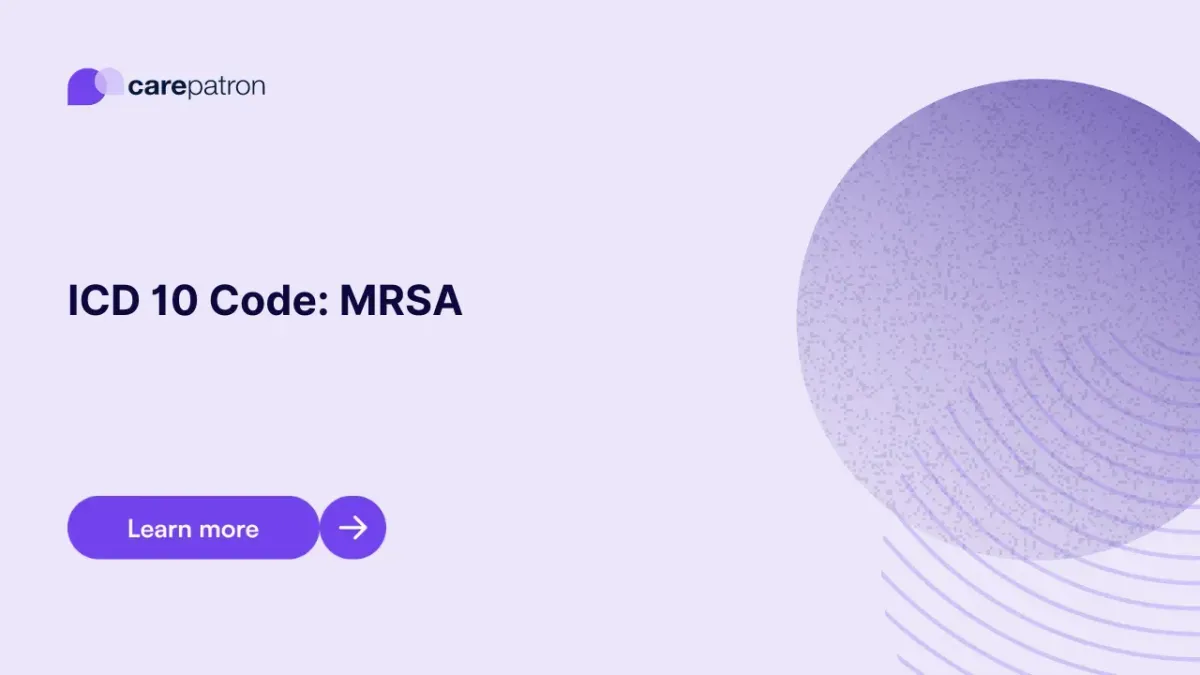
MRSA (Methicillin-Resistant Staphylococcus Aureus) ICD-10-CM Codes
Learn about the MRSA ICD-10-CM codes you can use through this guide.
Use Code
Commonly asked questions
MRSA is usually spread through direct contact with an infected wound or from shared items or surfaces touched by someone with MRSA.
Yes, MRSA is contagious and can be spread to others through skin-to-skin contact, especially if they have an open cut or sore.
MRSA is treated with antibiotics. However, specific drugs may be required because it's resistant to many common antibiotics.
EHR and practice management software
Get started for free
*No credit card required
Free
$0/usd
Unlimited clients
Telehealth
1GB of storage
Client portal text
Automated billing and online payments
